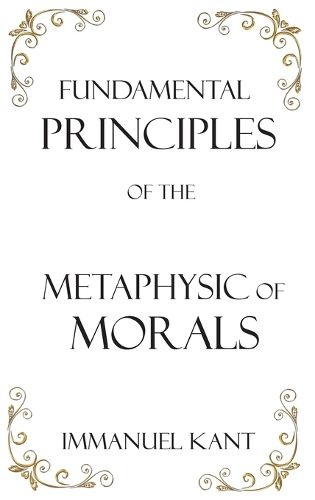Readings Newsletter
Become a Readings Member to make your shopping experience even easier.
Sign in or sign up for free!
You’re not far away from qualifying for FREE standard shipping within Australia
You’ve qualified for FREE standard shipping within Australia
The cart is loading…






This title is printed to order. This book may have been self-published. If so, we cannot guarantee the quality of the content. In the main most books will have gone through the editing process however some may not. We therefore suggest that you be aware of this before ordering this book. If in doubt check either the author or publisher’s details as we are unable to accept any returns unless they are faulty. Please contact us if you have any questions.
Kant conceives his investigation as a work of foundational ethics-one that clears the ground for future research by explaining the core concepts and principles of moral theory and showing that they are normative for rational agents. Kant conceives his investigation as a work of foundational ethics–one that clears the ground for future research by explaining the core concepts and principles of moral theory and showing that they are normative for rational agents. Kant aspires to nothing less than this: to lay bare the fundamental principle of morality and show that it applies to us. In the text, Kant provides a groundbreaking argument that the rightness of an action is determined by the character of the principle that a person chooses to act upon. Kant thus stands in stark contrast to the moral sense theories and teleological moral theories that dominated moral philosophy at the time he was writing. Central to the work is the role of what Kant refers to as the categorical imperative, the concept that one must act only according to that precept which he or she would will to become a universal law.
$9.00 standard shipping within Australia
FREE standard shipping within Australia for orders over $100.00
Express & International shipping calculated at checkout
This title is printed to order. This book may have been self-published. If so, we cannot guarantee the quality of the content. In the main most books will have gone through the editing process however some may not. We therefore suggest that you be aware of this before ordering this book. If in doubt check either the author or publisher’s details as we are unable to accept any returns unless they are faulty. Please contact us if you have any questions.
Kant conceives his investigation as a work of foundational ethics-one that clears the ground for future research by explaining the core concepts and principles of moral theory and showing that they are normative for rational agents. Kant conceives his investigation as a work of foundational ethics–one that clears the ground for future research by explaining the core concepts and principles of moral theory and showing that they are normative for rational agents. Kant aspires to nothing less than this: to lay bare the fundamental principle of morality and show that it applies to us. In the text, Kant provides a groundbreaking argument that the rightness of an action is determined by the character of the principle that a person chooses to act upon. Kant thus stands in stark contrast to the moral sense theories and teleological moral theories that dominated moral philosophy at the time he was writing. Central to the work is the role of what Kant refers to as the categorical imperative, the concept that one must act only according to that precept which he or she would will to become a universal law.